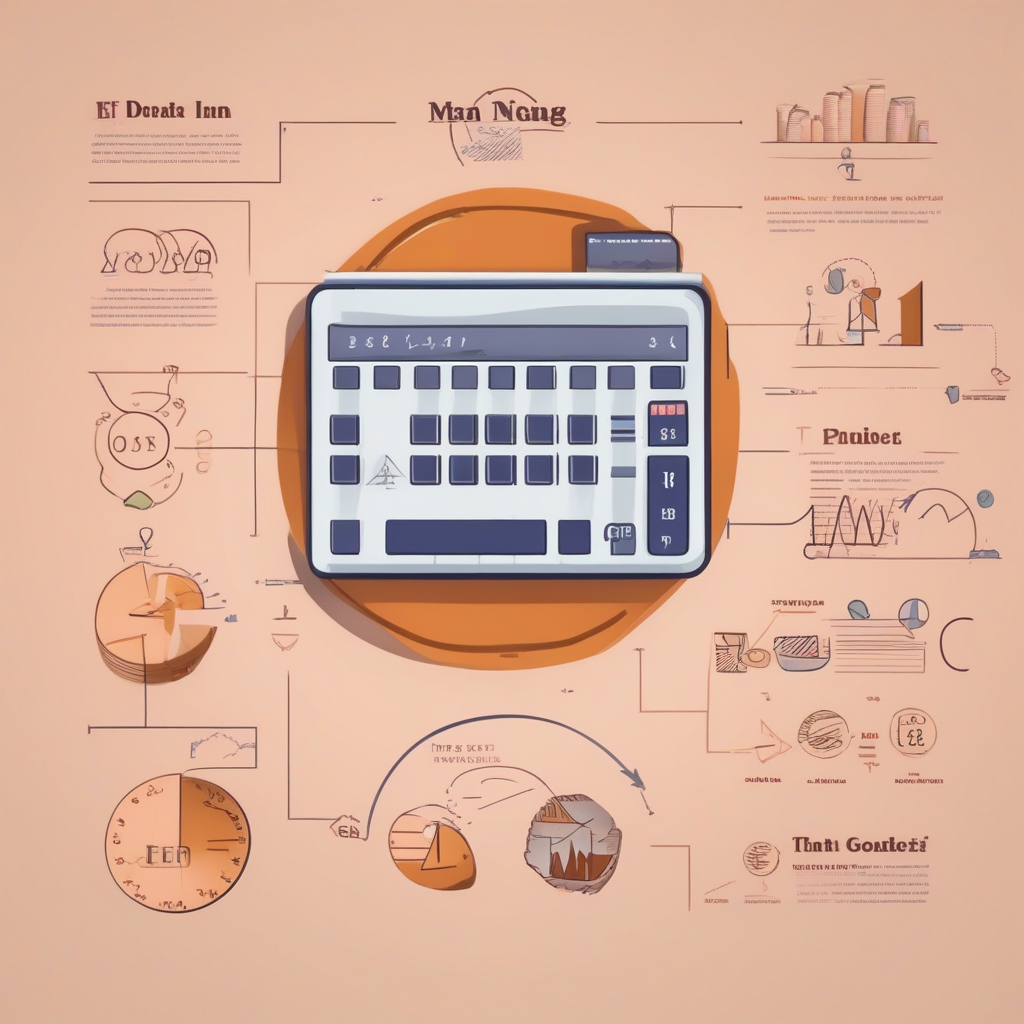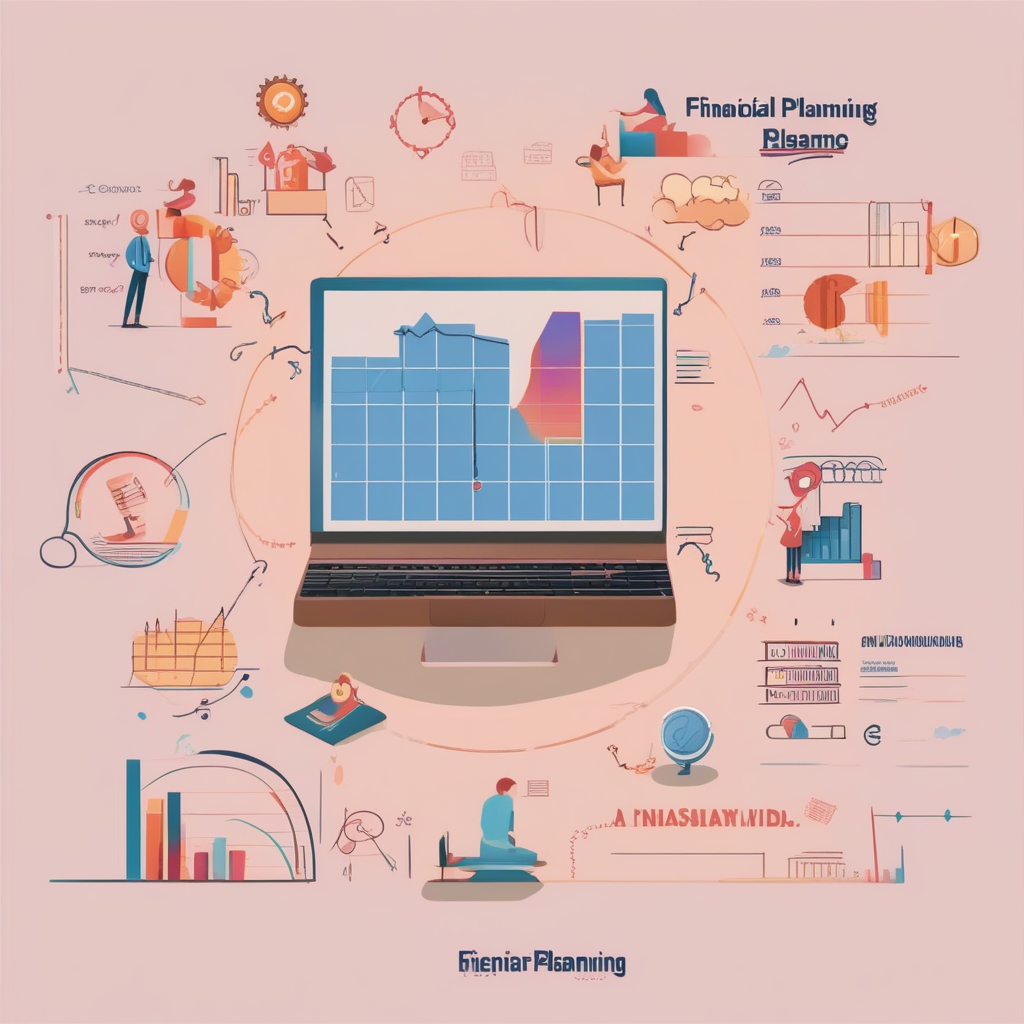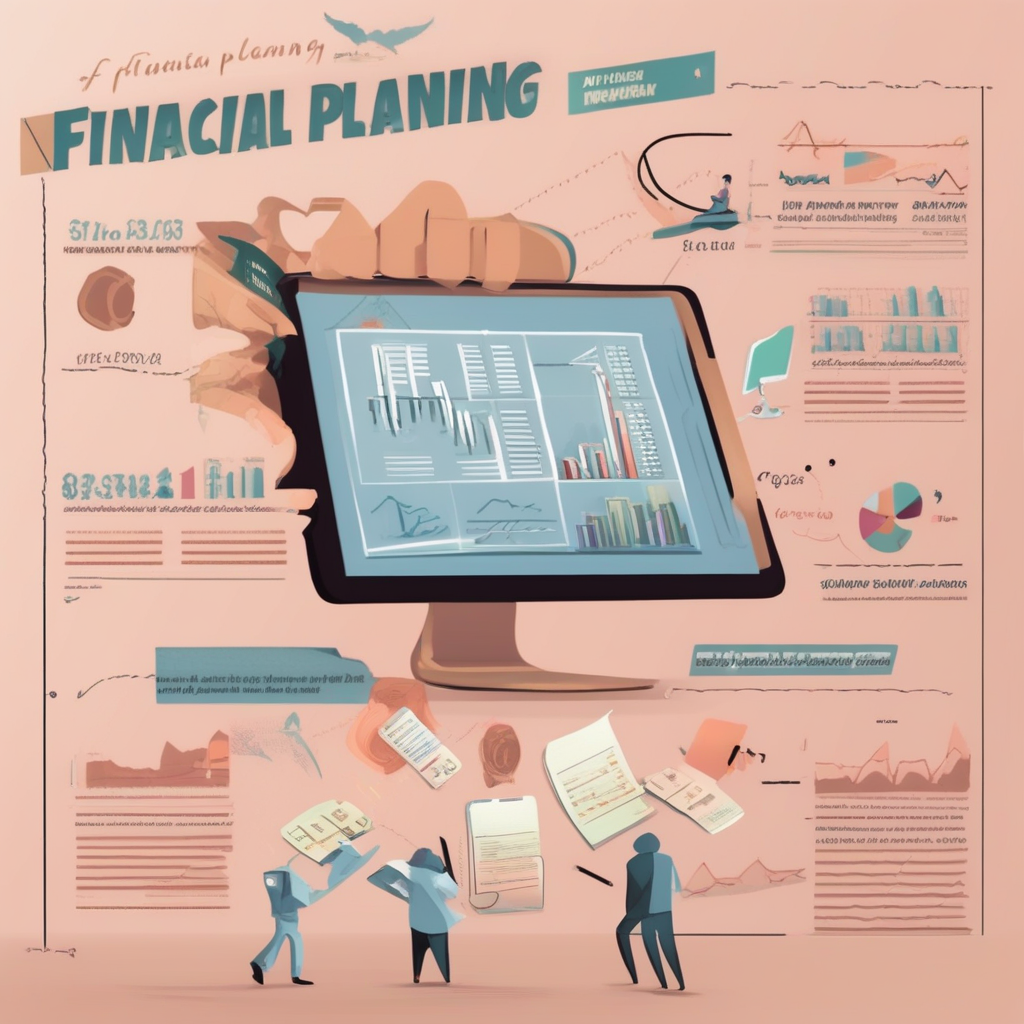Introduction
Financial planning might sound like a big, fancy term, but don’t worry, it’s easier than you think! Imagine having a cool map that guides you to a treasure chest filled with your future dreams—whether it’s buying a house, going to college, or even starting your own business one day. That’s what financial planning does for you.
It helps you manage your money smartly, so you can reach all your goals. Just like you plan a fun day with friends or save up for a new game, financial planning is about making good choices with your money. And guess what? You don’t have to be a grown-up to start thinking about it!
What is Financial Planning?
Financial planning is like a roadmap for your money. It helps you decide how to save, spend, and grow your funds wisely. Think of it like organizing your piggy bank savings. You put some money aside for candy, some for toys, and maybe some for a rainy day. Adults do the same thing, just on a bigger scale!
Why is Financial Planning Important?

- Helps You Achieve Goals: Whether it’s buying your first car or going on a dream vacation, financial planning helps you get there.
- Teaches Responsibility: Managing money is a big responsibility, and financial planning helps you learn how to make good decisions.
- Prepares You for the Future: You never know what life will throw at you. Planning your finances helps you be ready for anything.
Key Features of Financial Planning
Let’s look at some of the important parts of financial planning. It’s like building a house—each part has to work together for it to be strong!
| Feature | What It Means |
|---|---|
| Budgeting | A plan for how you’ll spend your money each month. |
| Saving | Putting money aside for future needs, like emergencies or big purchases. |
| Investing | Using your money to buy things like stocks or bonds that can grow over time. |
| Debt Management | Understanding and managing any money you owe, like loans or credit card balances. |
| Insurance | Protecting yourself and your assets from unexpected events, like accidents or theft. |
| Retirement Planning | Making sure you have enough money saved for when you’re older and want to stop working. |
| Tax Planning | Managing your money in a way that minimizes the amount you owe in taxes each year. |
| Estate Planning | Preparing a plan for your assets, like property and savings, for when you’re not around anymore. |
Steps to Start Financial Planning

Now that you know what financial planning is, let’s see how you can start your own plan. Even if you’re young, these steps will help you get on the right track.
Step 1: Set Your Goals
Think about what you want to achieve. Maybe you want to save for a cool gadget, college, or your first car. Write down these goals. Knowing what you’re aiming for makes it easier to plan!
Step 2: Make a Budget
Budgeting is like a game where you decide how much money goes where. You can use a simple notebook or even fun apps to keep track. List down your income (like allowance or small jobs) and expenses (like snacks, games, etc.).
Step 3: Save Smartly
Saving is not just about putting money away—it’s about doing it smartly. Open a savings account if you can, or use a special jar at home. Set a goal to save a little each month, and you’ll be surprised how fast it adds up!
Step 4: Learn About Investing
Investing might sound complicated, but it’s just another way to grow your money. Learn the basics of stocks, bonds, or even simple savings accounts with interest. Start small and let your money work for you!
Step 5: Manage Debt Wisely
Even if you don’t have debt now, it’s good to learn about it early. When you borrow money, like a student loan or a small amount from your parents, pay it back on time. It’s all about keeping promises!
Why Financial Planning is Like Superhero Training

Just like superheroes need training to save the world, you need to train yourself in financial planning to save your future. Here’s why financial planning is your secret superpower:
- It Builds Confidence: Knowing you have a plan makes you feel in control of your future.
- It Helps You Make Better Choices: You learn what to spend on and when to save.
- It Keeps Surprises at Bay: Life throws surprises, but with financial planning, you’re always one step ahead.
Frequently Asked Questions (FAQs)
1. What is the first step in financial planning?
The first step is setting your financial goals. Knowing what you want to achieve helps you create a clear roadmap for your money.
2. Why is budgeting important?
Budgeting helps you see where your money goes. It keeps your spending in check and ensures you’re saving enough to meet your goals.
3. How can kids start saving money?
Kids can start saving money by setting small goals, like saving allowance or birthday money in a piggy bank or a savings account.
4. What is investing, and why should I care?
Investing is putting your money into something that can grow over time, like stocks. It helps your money work for you, not the other way around!
5. How does financial planning prepare me for emergencies?
Financial planning helps you build an emergency fund—money set aside just in case something unexpected happens, like a car repair or medical bill.
Conclusion
Financial planning isn’t just for adults—it’s for anyone who wants to take charge of their future. Think of it as your personal guide that leads you through life’s ups and downs, helping you make smart choices along the way. It’s never too early to start thinking about how you manage money. By setting goals, saving wisely, and learning about investing, you’re setting yourself up for success. Remember, the earlier you start, the better your financial future will be.
So, grab your financial map, start planning, and get ready to achieve your dreams one penny at a time!
